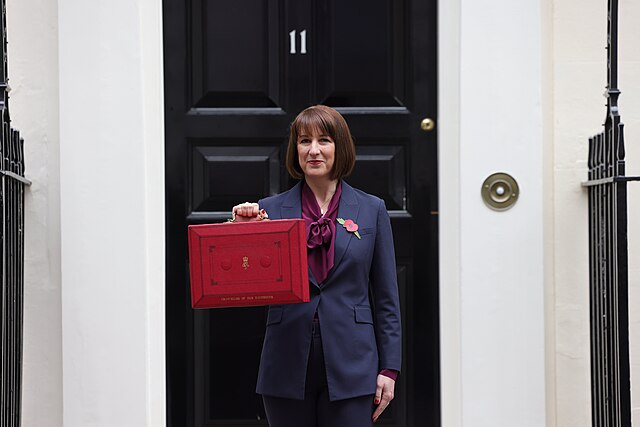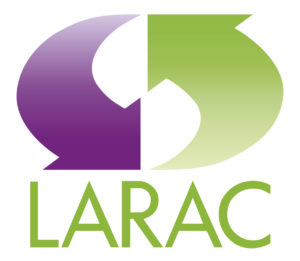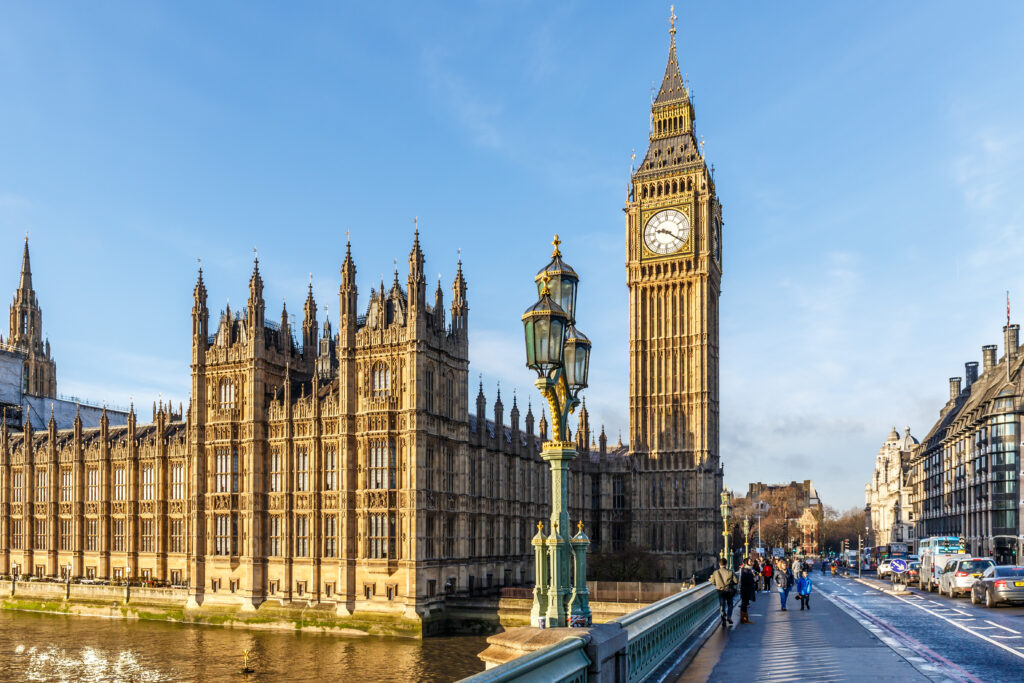The budget featured several items pertaining to the waste industry, including the Plastic Packaging Tax, CCS funding and the Landfill Tax.
Many in the industry have felt that the waste industry has largely been omitted from the budget. Dr Adam Read MBE, chief external affairs and sustainability officer at Suez Recycling and Recovery UK, said: “We welcome the government’s plan to increase public and private investment in infrastructure, including funding for carbon capture and green hydrogen, and funding for industrial decarbonisation and skills. However, it is disappointing that the waste and resources sector has been largely overlooked in the first Labour budget in 14 years. The opportunity to inject some real momentum behind the government’s commitment to a zero-waste economy – and all the benefits that can bring for growth, communities and the environment – has been missed.
“The waste and resources sector plays an essential role in both the UK’s net zero journey and in supporting the economy more widely, by underpinning green transitions across other industries including manufacturing, agriculture and food and drink. Today’s Budget lacked the policy clarity our sector is desperate to see on simpler recycling reforms and changes to the Apprenticeship Levy. The decision to reduce day-to-day funding for Defra is also concerning, as the department delivers vital programmes to keep the UK clean and reduce our impact on the environment.
“Moving towards a more circular and sustainable economy, and the vital green skills this requires, goes hand in hand with the Government’s ambitions to grow the economy and achieve net zero. We urge the Government to back up its warm words with meaningful action, and set out a clear policy direction for the future of the waste industry as soon as possible.”
Yesterday (29 October 2024), Michael Topham, CEO of Biffa, penned an opinion editorial for letsrecycle.com ahead of the budget in which he called for a “a sensible, stable policy environment” for the waste sector.
He responded to the chancellor’s speech: “Today’s budget was an important opportunity for the government to drive investment in a fair transition to a greener, circular economy. What we have seen are very positive moves from ministers to back capital spending in all parts of the economy and to provide a stable policy environment for investors, but we believe the announcements today could have gone a lot further.
“For example, we welcome the decisions made about Landfill Tax rates and to support the increase in the PPT rate for next year in line with inflation set out today. However, we believe that to deliver a step-change in demand for recycled plastic, a progressive PPT is essential. Biffa has campaigned for this change for years and we will continue to raise it with the government.
“Similarly, although the budget makes clear that the government wants to increase uptake of electric vehicles, we’re disappointed the budget didn’t offer significant new backing for decarbonising commercial road vehicles. We very much want to transition more of our collection fleet of HGVs to alternative fuels. To deliver this, we need a policy framework that will drive investment in grid upgrades and accelerate progress on HGV electrification. In the interim, whilst the infrastructure for electric vehicles develops, we need incentives to drive the adoption of low-carbon fuels such as HVO to cut emissions. Again, we’ll continue to call for these changes.
“Overall, we’re pleased that the chancellor restated the government’s ongoing commitment to maximising economic growth, boosting skills, improving productivity, and making the UK a clean energy superpower. We welcome her comments about the proposed Industrial Strategy, investment in green hydrogen, and funding for Carbon Capture and Storage projects which we’re already supporting as a cornerstone investor for the Protos EfW in the Northwest cluster. We will work with ministers and the rest of our sector on these opportunities and look to go further to unlock the full potential of decarbonisation and a zero-waste economy.”
James Rigg, CEO of Trojan Electronics, commented on the missed opportunity to make repair more affordable for customers. He said: “While we are disappointed that the VAT on repairs remains, the CLEAR group and Trojan Electronics will continue to advocate for sustainable change within the sector. The high cost of repairs remains a barrier for many consumers, and we believe reducing or removing VAT on repair services would encourage the sustainable choice of fixing rather than replacing broken electricals.”
“This budget was a missed opportunity to make repairs more affordable for the public. However, we remain committed to advancing our work with the CLEAR group, pushing for broader support from policymakers to make sustainable repair solutions a priority for both the environment and consumer savings.”
Jacob Hayler, executive director of the ESA, said: “We are pleased that the chancellor took the opportunity to restate the government’s commitment to implementing the Collection and Packaging Reforms Programme, which includes Extended Producer Responsibility (EPR) for packaging. This means that packaging producers will support local authorities with over £1bn of funding each year to help drive up national recycling rates while ensuring that the ‘polluter pays’ for the management of packaging waste.
“The ESA also welcomes the continuation of previously announced adjustments to Landfill Tax rates from April 2025, which will ensure they continue to rise and maintain the incentive to drive waste material further up the waste hierarchy.
“However, we were disappointed that the Treasury has ignored advice from the recycling and waste treatment sector to escalate the Plastic Packaging Tax (PPT) over the next five years to £500 per tonne and a 50 per cent recycled content threshold in order to drive up recycling rates for plastics – instead opting only to raise it in line with CPI in 2025-26. This will continue to constrain markets for recycled plastic, which in turn will damage Labour’s circular economy ambitions, while leaving councils exposed to unavoidable costs when the Emissions Trading Scheme is applied to residual waste treatment from 2028.
“At its current levels, the Plastic Packaging Tax is not driving plastic recycling performance or creating markets for recycled polymers. Domestic reprocessors have to compete with both cheap imported recycled content and virgin material when oil prices drop. To correct this, the UK needs stronger regulation and enforcement around imported material, alongside the aforementioned escalator on the PPT. The ESA recognises the announcement in the budget that businesses will be permitted to use a mass balance approach to evidence recycled content in chemically recycled plastic, which should support recycling for lower grade films and flexible plastics, but this needs to be implemented sensitively to ensure that the waste hierarchy is maintained.”
Gavin Graveson, chief executive officer of Veolia UK and Ireland, said: “We welcome the Budget that signals growth, and the green economy remains firmly on the Government’s agenda.
“For the recycling and waste sector, the government’s decarbonisation programme pledges important funding for CCUS and green hydrogen but misses the mark on incentivising the fastest way to decarbonise waste; removing plastics from the waste stream.
“We were disappointed that the Plastic Packaging Tax (PPT) was only increased in line with CPI and that the Treasury did not set more ambitious targets to increase recycled content. The PPT must be increased in line with the rises seen across the landfill tax rate and in preparation for the Emissions Trading Scheme to move more plastics from a waste to a resource.
“Increasing the Plastic Packaging Tax to £500 per tonne and 50% recycled content over the next few years will help stimulate a stagnated plastic recycling market, open up new investment and jobs and lower emissions from waste treatment significantly.
“A mass balance approach will support emerging technology across the chemical recycling sector and make progress for the lower grade plastics to be recycled in a circular economy, but further action is required to ensure there is an end market for the recycled content.
“Tackling hidden economies is also a welcome step. We urge Defra to swiftly reform waste carrier licences and take strong action against waste crime, which blights our industry and the environment.
“The chancellor has addressed a number of policy areas that are vital for the UK’s transition to a greener economy, but further progress could and should be made in the coming months to accelerate this transition.”
Jim Bligh, director of corporate affairs and packaging for the Food and Drink Federation (FDF), said: “Driving investment and growth is critical to ensuring the continued success of the UK’s largest manufacturing sector, and protecting the nation’s food security. So we welcome the Chancellor’s focus on a consistent, long-term approach to tax and regulation, which should help unleash the growth potential of the food and drink manufacturing industry’s 12,500 businesses.
“As a critical advanced manufacturing sector, we stand ready to work with government to make the most of this support. Boosting investment in R&D will help the industry to create jobs, drive innovation, and grow export opportunities – resulting in a stronger industry that underpins the nation’s food security.
“Food and drink manufacturers want and need a circular economy for packaging recycling, so it’s great news that the government will enable companies to use mass balance accounting. This important change will open up new markets for advanced recycling in the UK, creating green jobs and investment opportunities, while increasing the amount of recycled content used in food-grade packaging.”
Jason Galley, director and chief executive of the Metal Packaging Manufacturers Association (MPMA), said: “The Treasury’s budget commitment to top up council’s Extended Producer Responsibility (EPR) fees should they fall short of the expected £1.1bn target is surely a tacit admission of the confusion and disarray still surrounding the scheme and a reflection of the hugely negative packaging industry reaction to the illustrative fees suggested by Defra in recent weeks.
“Achieving fair and just EPR fees which can be accepted by all materials is central to the scheme’s successful implementation, but we are still a long way from achieving this. Concerted industry efforts, to ensure that fees reflect the role of genuinely sustainable materials, such as metal, in creating a circular economy, continue.
“Get EPR costs right and everything else will follow suit to create a virtuous circular economy where costs are reduced and recycling rates increase. Avoiding a taxpayer-funded bail out should be an absolute Defra priority. The MPMA has calculated that the current illustrated fees will see material switching away from the easy, economical-to-recycle materials to those that cost more to dispose of. Costs are forecast to go up while EPR fee revenue goes down creating a lose-lose for the economy and the environment, and yet another inflationary pressure.
“The rise in employers’ national insurance contributions is clearly the big-ticket item in this budget and metal packaging manufacturers will inevitably be impacted. This measure has been trailed for weeks leading up to the budget so will not have come as any great surprise, but the imposition of an additional financial burden on businesses still reeling from soaring energy costs and a prolonged period of higher interest rates will be challenging.”
Local Authority Recycling Advisory Committee (LARAC) released a statement following the budget announcement: “LARAC welcomes the chancellor’s announcement of Extended Producer Responsibility (EPR) funding for local authorities, with an additional £1.1 billion expected in 2025/26. It is reassuring that the Treasury has committed to a “top-up” should EPR revenue fall short of projections. This guarantee gives local authorities confidence in planning budgets and delivering essential waste and recycling services for 2025-26.
“However, further details are still needed. Local authorities require timely confirmation of their EPR allocations and need assurance that these fees will cover the actual costs of waste and recycling services. It is also vital to ensure that this funding remains dedicated to waste and recycling services and will not be reallocated or offset by reductions in other government funding for local authorities, including capital funding, in the coming years.
“In addition to EPR funding, we look forward to more detail on allocating the £50 million outlined for research and development to advance net-zero goals. A clear breakdown of these resources is essential for councils to effectively align their environmental efforts with national targets.
“Looking beyond the immediate financial year, LARAC will continue to advocate for a funding model that fully supports the actual costs of waste and recycling services. This approach will allow local authorities to plan and deliver services that drive the zero waste and environmental goals central to the government’s wider agenda.
Philip Law, director general of the British Plastics Federation (BPF), said: “The plastics industry is a direct employer of 150,000 people and, with a reasonable multiplier, we have at least 500,000 dependents in the UK. We have a high sensitivity to the impact on employment.

The Budget Statement, with its manipulation of fiscal tools is only part of the story that matters. We need to add on the costs to industry of the Employment Bill.
Specific aspects of the Statement were very welcome such as the positive declaration that mass balance is an acceptable form of measurement for the chemical recycling of plastics. However the wider growth policy needs more substantiation and development.There was little to say how manufacturing will be incentivised to partner with government in delivering infrastructure projects and the house building programme.
The unpalatable area is the additional NI costs on employers allied to the broader extra-budgetary costs relating to employment law reform.This will inevitably turn manufacturers towards more use of AI and against the employment of human beings.
Having said this, it was always going to be a difficult budget with more funding required for healthcare, education and defence. Let’s hope that the positive aspects of the statement become consolidated into the development of the Industrial Strategy and a 10 year Infrastructure Plan. Only then we will know if ‘short termism’ has come to an end, as the Chancellor claimed.”
















Subscribe for free